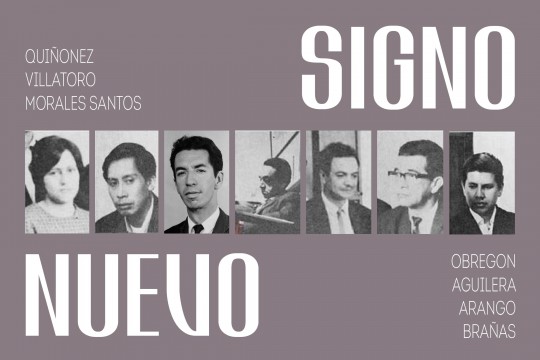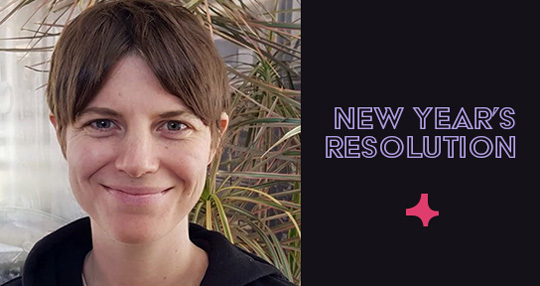In our globalized world, translation seems to be everywhere. In subtitles, instructions, signs, menus, in meetings, and walking down the street. And recently, in fiction too. The representation of the act of translation and the task of the translator has become a recurrent topic in literature. In English, novels such as Idra Novey’s Ways to Disappear and Rachel Cantor’s Good on Paper, both from 2016 and with translator protagonists, were very well received by readers as well as critics; and the latest anthology Crossing Borders, edited by Lynne Sharon Schwartz, brings together stories on translation and translators by acclaimed writers such as Joyce Carol Oates and Lydia Davis, among others. Translation was even at the center of the Academy Award nominee film Arrival (based on Ted Chiang’s short story “Story of Your Life”) in which Golden Globe nominee Amy Adams plays a translator tasked with communicating with heptapod aliens. The increasing need to understand the importance of translation in our globalized world has manifested in a recurrence with which works of fiction feature a translator or interpreter as the main character. In Spanish, too, there have been dozens of novels with translator protagonists written in the last few decades by both mainstream and cult authors, and by both translators who write and writers who translate. With this newly found interest in translation, more and more of these novels are being translated into English. Here are five novels on translators originally written in Spanish that are available to read in English translation.
Essays
On Translators in Translation: Spanish Novels About Translators Available in English Translation

The increasing need to understand the importance of translation in our globalized world manifests in works of fiction that feature a translator.
On Surtitles and Simultaneities: Reflections on the German Theatre Scene
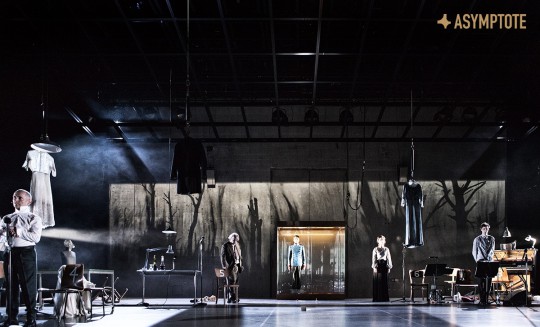
No longer before, behind, or above the original, with surtitles, the translation is now parallel or simultaneous to it.
Lars Eidinger, playing Richard III, huskily whispers some German lines of Shakespeare into an amplifier, furtively glances up to the English surtitles, and spins round to berate a coughing audience member in French. This is theatre in a truly globalised arts scene. But the multilingual nature of many recent productions not only reflects the realities of our contemporary social conditions. It raises fundamental questions about the nature and role of the linguistic mediation of culture today.
Coals to Newcastle: A (biased?) Slovak overview of a century in American literature
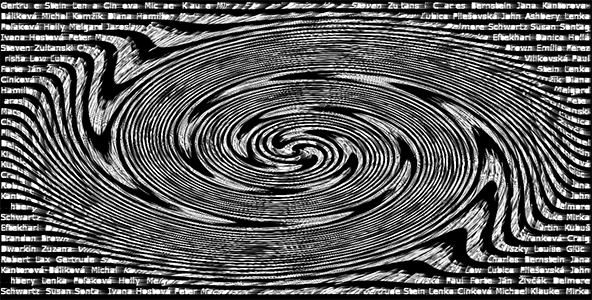
The ambition of the “American” issue of RSL was to resist preconceptions and cross boundaries.
Small cultures import disproportionately more texts—both translated and original—than they export. However, literatures using a language with a limited number of speakers are not just markets for globalised goods. Translations quite naturally also help them develop and sometimes even exist, as cases of small languages that ceased to be the target languages for translations show. Revue svetovej literatúry (Review of world literature) is a Slovak magazine founded in the “golden” 1960s that brought an abundance of new impulses to Slovak literature from all over the world for the past fifty years. Late last year, writer and translator (and Asymptote past contributor) Peter Macsovszky and literature and translation scholar Ivana Hostová edited and co-translated (with the help of a team of translators) an issue of the magazine with a focus on contemporary and twentieth-century Anglophone literature from the US.
In her Buying into English (2008), Catherine Prendergast analyses the semantics and economics linked to the ability of speakers of a minor language—in this case Slovak—to use the language of global communication. She compares the perceived value of English in Slovakia immediately after the fall of state socialism and then in almost two decades in the post-communist Slovakia. The strict restriction of the flow of information between socialist Czechoslovakia and the Western world gave rise to an idealised notion of the Anglophone (and, more specifically, American and capitalist) world. It came to signify freedom and prosperity and was—in the minds of many Slovaks—expected to embrace and accept with curiosity and eagerness the cultures and peoples freed from the socialist regime. Prendergast suggests that the notion was only abandoned after it slowly became clear that “the lingua franca is language-as-battlefield; it is the terrain upon which players in the global information economy grapple for property, respectability, and political voice.” Now it has become obvious that it takes more than pureness of heart and an admiration for the American culture and way of life to extract any interest from what Michael Cronin in his Eco-Translation (2017) has called the crowded Anglophone attentionscape.
The proportion of imported versus exported goods including cultural products can be very well illustrated by the amount of translations produced in the Anglophone countries as opposed to cultural spaces[i] like Slovakia. Therefore, wanting to import even more texts from the dominant to small culture might seem like carrying coals to Newcastle. However, if we try to differentiate between a piece of writing as a commodity that primarily generates economic profit and institutional legitimation and look at the autonomous sections of the literary field—at those works that were not created to make the author famous or rich, but which came into being in order to exist for themselves and in their own right—it may come as a surprise that not much American writing can really be found in Slovak translation. In this context, an issue of a Slovak literary magazine bringing translations of Anglophone writing from the United States seems redundant only at first glance. Most of the literature written in the US that gets translated into Slovak nowadays can best be described as a commodity—currently, the best-selling book in the biggest Slovak bookshops is the translation of Dan Brown’s Origin (2017)—it is the kind of writing that, although undeniably culturally domineering and shaping the receiving context, does not inspire in the sense of creating resistance to the existing (cultural) preconceptions or fluent strategies of reading.
(M)other Tongue: Sign Language in Translation
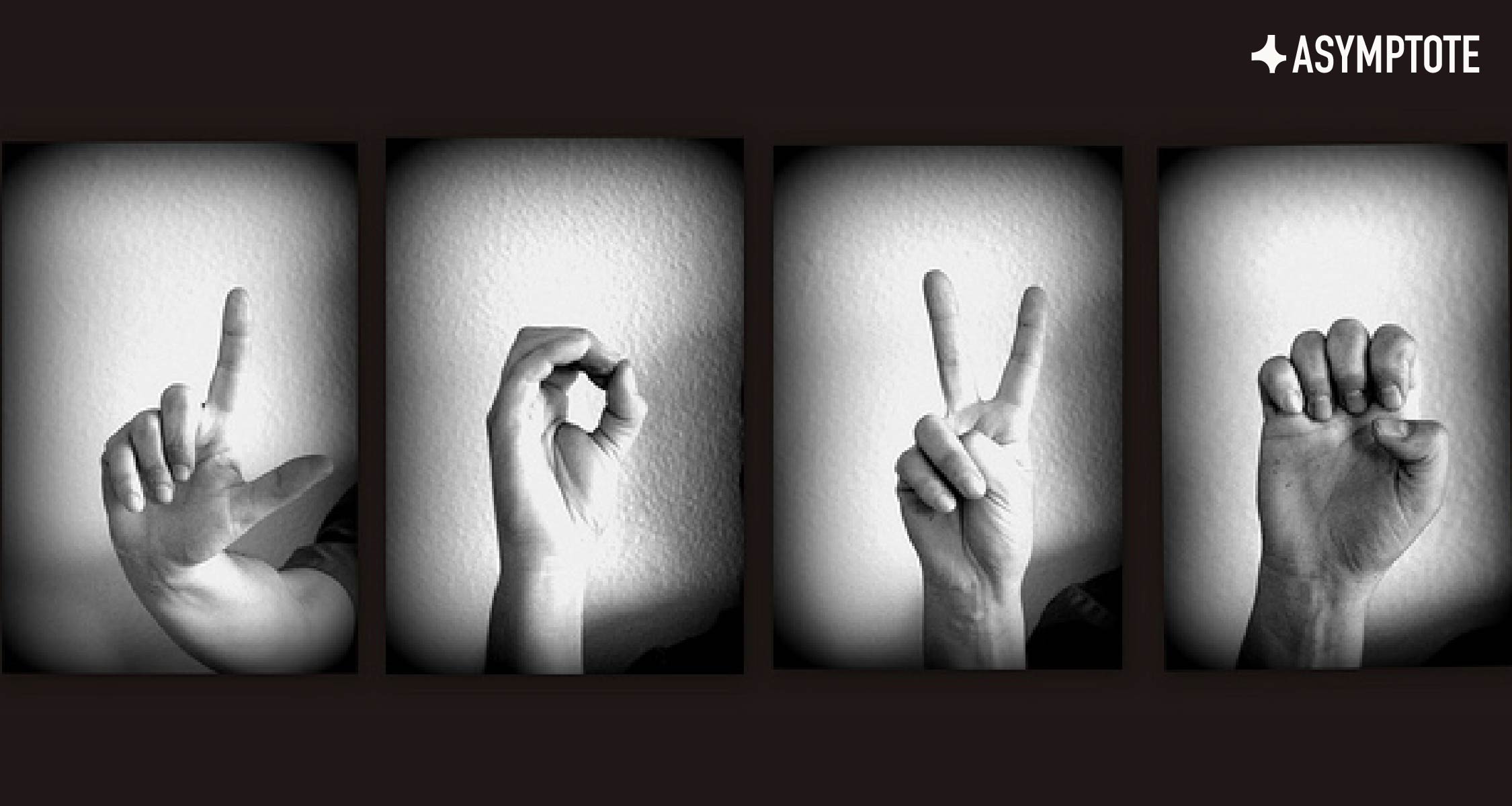
"I can only access conversation that is intended for me to access—and so all spoken conversation that I pick up is meaningful."
When I began to progressively lose my hearing at three years old, my mother fought for me to have access to both British Sign Language classes and speech therapy sessions, offering me a dual-language gateway. Through travel and education opportunities, I know phrases, sentences and expressions in other languages—both signed and spoken. But it is in English and BSL that I primarily express myself, code-switching when appropriate and, at times, combining the two together to speak SSE (Sign-supported English). This is sign language that follows English grammatical structure, as opposed to BSL structure. For those new to BSL, it can come as a surprise to discover that it is its own language, complete with its own rules, format and words—or rather signs—that have no direct equivalent in English.
And so, on a day-to-day basis, I communicate using my hands (signing), voice (speaking), and eyes (lip-reading), as a giver and a receiver. I enjoy the literal sound certain words make as they hold space in the air. Simultaneously, and without contradiction, I love the shape of language created by fingers, expressions and the body. People also underestimate the use of the whole body in sign language – though it is primarily through the hands that words are expressed; meaning, content and colour is amplified through other parts of the body, in particular, the face.
An Inconvenient Newspaper: Robert Cox and the Buenos Aires Herald

"I know what a country without journalism means, and it’s the most terrible thing you can think of.”
“An Inconvenient Newspaper” is an essay about the recent closure of the Buenos Aires Herald, a paper that wrote against the Argentine military dictatorship, in English, in the 1970s and 1980s. The Buenos Aires Herald closed in July, just as an Argentine indigenous rights activist disappeared. The full profile of Robert Cox, the director of the Herald, was published in a Portuguese translation in issue no. 133 of the Brazilian magazine Piauí, released in October 2017. This English translation is an abridged version of the original Spanish article by Josefina Licitra.
“Any news?” That’s how Robert Cox greets me. He says “hello” and “nice to meet you” with an affectionate kiss on the cheek. But in the following sentence he always probes for the unexpected, for the possibility of news. It’s 10 a.m. on a Thursday and Cox looks like he just woke up. His eyes are still sleepy and his white hair finger-combed.
“Not that I know of,” I reply.
Cox makes coffee in the kitchen and brings it to the living room: a pleasant space scattered with paintings, family photos, and other decorations. He lives with his wife, Maud Daverio, in Charleston—in the United States—but also keeps this old, elegant Buenos Aires apartment, which he visits every year. This is where he lived after getting married, in 1961. This is where his five children were born. This is where he lived when the Buenos Aires Herald, the English-language newspaper that he directed from 1968 to 1979—one of a kind in Latin America—became the Argentinian publication that spoke out about human rights violations during the last military dictatorship, at a time when no other media institution would. And this is the place that he had to leave when a series of threats—also directed against his wife and one of his children—forced his family into exile.
Cox looks through the voile curtains. Outside the window is a narrow street lined with the pompous buildings of the Recoleta neighborhood, one of the most European areas of Buenos Aires. “I don’t know what happened with Santiago Maldonado…” he says, and clicks his tongue with an audible tsk. “Still no news? Weird.”
Santiago Maldonado is—was?—an artisan who supported the struggle of radical indigenous groups that reclaim land in Patagonia. This past August 1st, after a protest that stopped traffic, he disappeared in the middle of a confrontation with the Gendarmería—border officers. Some say that the police arrested him and accidentally killed him through the use of excessive force. Others say that there is no evidence to show that the government was at fault—and to this day there still isn’t—but they also can’t come up with a different explanation for his disappearance. Since then, demands to find Maldonado alive—or to find him at all—have deepened the divisions between Argentina’s governing party and its opposition. While the government refers to Maldonado as an “artisan,” kirchneristas and left-wing parties call him a desaparecido—one of the “disappeared.”
That term, in Argentina, dredges up the history in which Robert Cox was involved.
There is Nothing Anymore: Auden in the Saint Lucian Countryside
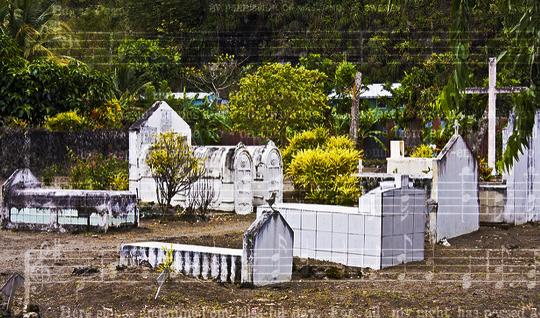
No end also to loss, yes, but no end to our tragic struggle against despair.
In this personal essay, a young poet attends a funeral in his native Saint Lucia, where a spontaneous funeral chant puts him in mind of a poem by Auden. To Vladimir Lucien, the funeral chant and the Auden poem constitute different approaches to the finality of death. In their juxtaposition, we learn something not only about the language and customs in the Saint Lucian countryside, but about the universal human yearning for the transcendence of our finitude.
Alloy’s funeral was packed. It had to be. In the village of Mon Repos, Saint Lucia, he had been everything: head of the local “friendly society,” choir member, bus driver, community organiser and activist, folk singer. The church, however, was an unusually small and claustrophobic Catholic Church with a low ceiling; it felt like a house converted into a church and hurriedly sacralised. Alloy’s daughter—who was a lecturer, my colleague—delivered the eulogy.
An Inventory of Resistance: Notes on Catalan Language Politics in Literature
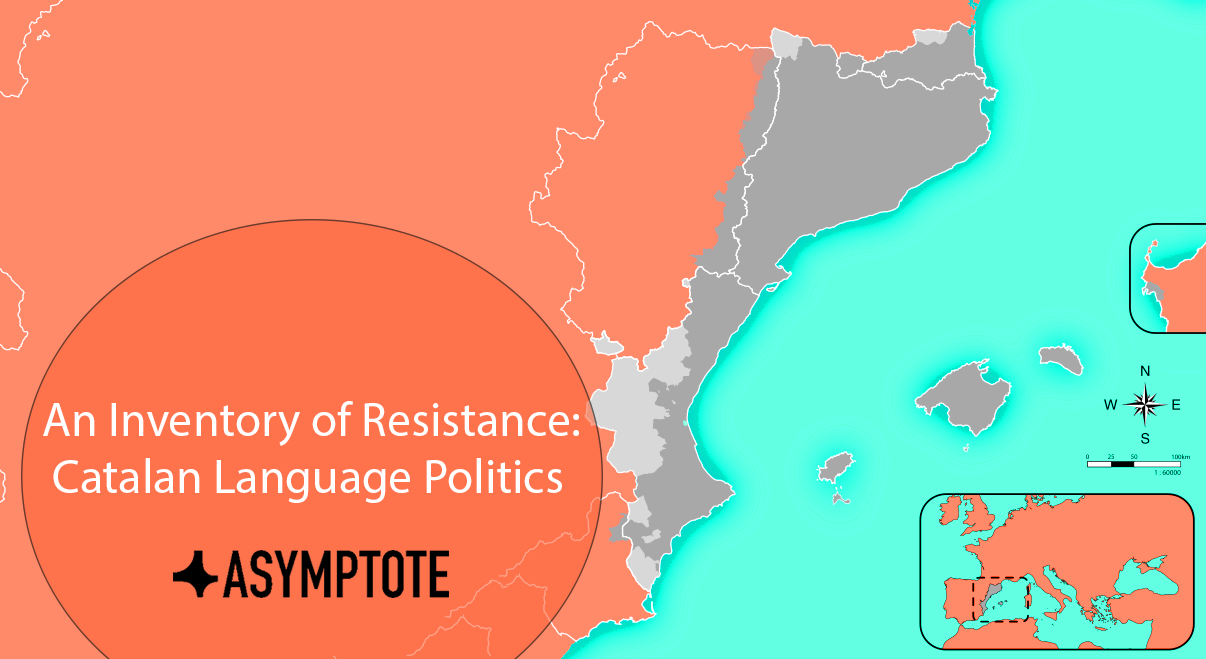
Perhaps part of the uniqueness of Catalan comes from this awareness of its influence on and disconnection from Castilian and European traditions.
Part I: The Nineteenth Century
At first, I was hesitant to write an article on the uses of the Catalan language in literature throughout recent history. After the referendum for Catalan independence held this past October 1, which was deemed illegal by the Spanish government, and the subsequent episodes of violence that occurred in the region, the topic has come to be a sensitive matter for any national. However, where there is a language, there is a literature, and the history of Catalan is one of stubborn resistance. It is my contention that the history of a language is somehow lived out in those who speak it, insofar as a sentiment of ambiguity still informs contemporary critical debates on the usefulness and adaptability of Catalan literature. “Is Catalan literature diverse enough? Can it cultivate all genres? Is it economically viable?” are questions that have resonated among critics and the public alike. Catalan literature inherits a sense of shame from its own fruition, and it is this feeling that I want to explore with this genealogy of usages.
This is not a history of Catalan literature and the texts featured here have not been selected according to an aesthetic canon. This is an archive of perceptions of Catalan language and literature as experienced throughout the nineteenth and twentieth centuries, from the literary resurgence known as La Renaixença in Catalan literary history (parallel to which political Catalan nationalism as we know it unfolds) to the relatively normalized literary field in existence today. While certainly not the only appropriate approach, in what follows I present a succession of events from the nineteenth century that Catalan historiography has employed to explain the evolution of the uses of the language.
Tracing Szilárd Borbély’s Poetry in The Dispossessed

To lay bare the inarticulate self as it is thrown into the violent mould of the world—and to uphold the captured encounter without commentary.
Because language is like night-time. Moist,
an indecipherable series of grunts. Pure dread, and
inchoate visceral shrieking. It is inhuman.
from “On the wings of freedom“
The Dispossessed, Szilárd Borbély’s first novel (translated by Ottilie Mulzet), was published in Hungary in 2013, just a year before he took his own life. Its reception was exalted, the scope of its success overwhelming and somewhat unexpected. Until then, Borbély had been primarily known as a poet, whose voice stood starkly apart from the literary mainstream’s travesties, veneration of subjectivity, and l’art pour l’art games with language. Instead, Borbély reached back to Baroque liturgical forms, motives of Hasidic folklore, and he crafted a depersonalised voice so as to hone in on the roots of the self: the stuttering of fear, grief, hope. In other words, he fused the interpersonal and the formalised with barely articulate and verbal intimacy. The relationship between language and the body was at the heart of this fusion: he wrote about the physicality of speech, the sequence of aging that connects birth and death, about the immediacy of sensory life and the brutality of this immediacy.
This poetic voice was not simply an aesthetic choice for him. Rather, it stemmed from a realisation that the world is fundamentally different from “the language we live by” and that much of it “cannot even be expressed as questions, or formulated as problems.”[1] For him, the world existed in a rawness that defied legal and moral constructs, be they about human rights or divine redemption. It defied the very rules of language. Crime—raw and immediate—is only arbitrarily linked to punishment, and only when it is too late. Law alone could never prevent the killer from entering the room. Imre Kertész—the Holocaust survivor novelist who won Hungary’s only Nobel in literature—saw no reason not to expect that you can be shot anytime, anywhere. Similarly, Borbély was acutely aware of how thin the coat of law was and how in vain it existed in the face of brutality, especially after the house-break that led to his mother’s homicide.
Roberto Piva, a Living Library
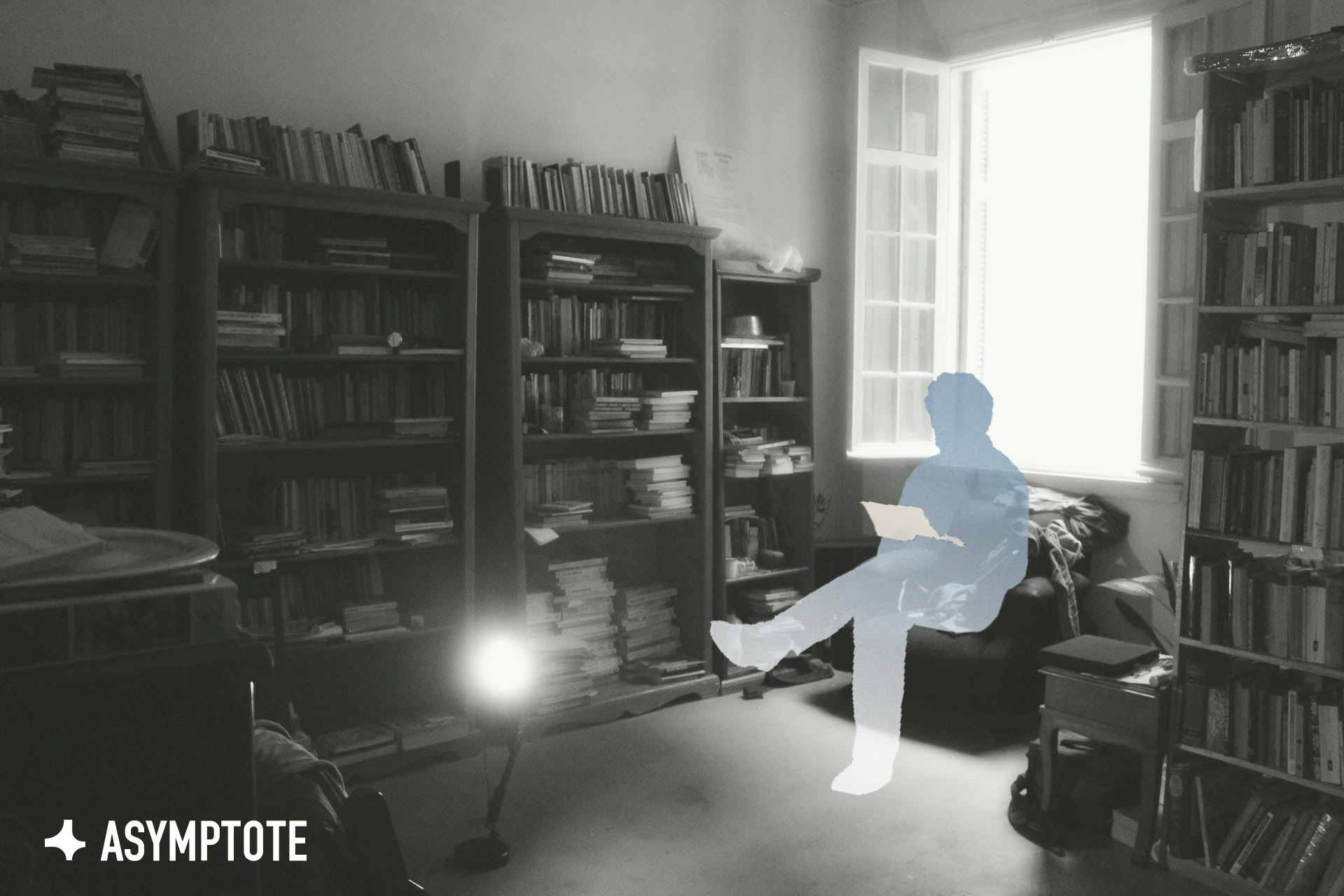
When a library such as Roberto Piva’s is reborn—especially through each reader bringing his legacy to the present—, a shaman is reborn with it.
It’s four in the afternoon and I step out to walk through the streets of downtown São Paulo, looking for what is left of a city I have not actually experienced but have imagined from Roberto Piva’s books. With a sense of nostalgia, I identify mythic street corners, revamped bars, buildings, parks, and statues, but time keeps grinding on and it weighs heavily on the landscape. That boy walking through Praça República, listening to that song “Deu Onda” for the umpteenth time, looks nothing like the kids who wandered around here sixty years ago, always carrying with them a book by Lorca, Artaud, Ginsberg, or Jorge de Lima. In a final, delirious attempt, I pause on a detail of the landscape: I look up, to the top of Edifício Copan, but Polén and Luizinho, spewing all the semen in the universe, aren’t there, either. The little that remains of that nostalgic delirium borne of reading a book may perhaps be found in the place where I’m headed, the second floor of number 108 on Avenida São João: the Roberto Piva Library. There they assemble the books, manuscripts, and other traces of an important poetic oeuvre that is more widely known because of its eccentric author’s cult status than because of a systematic study of his texts.
If we try to insert him in the history of Brazilian poetry beginning in the 1960s, Piva resists, a dissonant voice. But perhaps the silencing of his work ought to be reevaluated. When we read much of the bibliography about the author, we are left with the impression that the reception following the launch of Paranoia turned out to be a fairly isolated case: first, in the 1960s, there was a moralizing silence from critics in which they agreed to read him in direct association with Surrealism. Later, in the 1970s, there was the strange inclusion of his writing in the anthology organized by Heloísa Buarque de Hollanda with twenty-five other poets. In the following decades, there was the “co-optation” of his poetry by homoerotic literature. Finally, he would come to occupy his current position with the launch of his “Collected Works” by Editora Globo, which won over a far wider public and continues to be rediscovered.
Happy New Year! To ring in 2018, we’re showcasing staff members’ New Year’s resolutions. Caitlin O’Neil, Chris Power, Claire Jacobson, and Theophilus Kwek have already submitted theirs to our special New Year edition newsletter (subscribe here if you’re not already on our mailing list). Today, South Africa Editor-at-Large Alice Inggs reckons with the unfinished books on her shelf, resolving to read them before the year is out.
There they stand, with bookmarks at various points of incompletion, like paper tongues sticking out in gentle but persistent mockery: the books on the shelf that I have bought but never read or, to be precise, never finished reading.
It is at least a universal trait, this type of unfinished business, judging by the many part-read books in secondhand stores, marked with a receipt from a now-closed chain of stores, or a faded family photograph, a bubblegum wrapper, or a dog-eared page. Once, midway through a secondhand Elmore Leonard, I even found an airplane ticket—it was from 1982 and marked “non-smoking”.
Why don’t we finish books in which we’ve invested money and time? Why stop halfway like that non-smoking Leonard dabbler? Or on page 120 of 388, like I did with Nobel Prize-winning author Mo Yan‘s Frog? Well, in this case, I packed Frog, a present from Christmas 2014, into a box and only recently rediscovered it, along with several other half-read novels. Is this really an excuse, though? What about the many very visible reads-in-progress on my shelf? I decided to get them out, stack them up, and take their measure. READ MORE…
My 2017: Jacob Silkstone
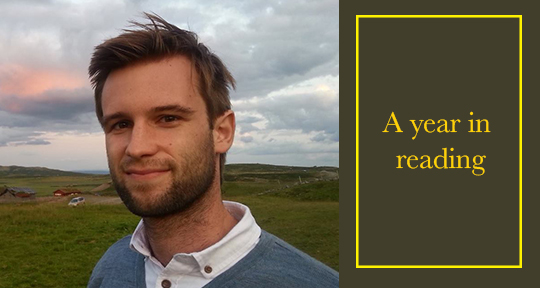
Perhaps the fitting thing to do would have been to throw the book into the water and let the waves close over it...
Assistant Managing Editor Jacob Silkstone travelled between several countries and two distinct stages of his life in 2017—and still had time to read a ton of literature! Today, in our final column, he reflects on the books that accompanied him on the move.
* * *
“If I imagine something, I see it. What more would I do if I travelled? Only extreme feebleness of the imagination can justify anyone needing to travel in order to feel.”
The complete edition of Fernando Pessoa’s The Book of Disquiet (translated by the incomparable Margaret Jull Costa) finally became available to English readers in 2017, and I first read Bernardo Soares’ hodophobic lines in an Airbnb flat in Portugal at the 40-degree height of summer. The water supply had been temporarily cut off and for hours the taps dribbled a thin brown fluid, but I had Soares’ life “of slow rain in which everything is … half-shadow” to keep me occupied.
In a year that began with the Trump travel ban and continued to be marred by small, scared attempts to shelter from the world behind various walls (both real and imaginary), it seems worth playing Devil’s advocate to Soares/Pessoa: perhaps there can be some justification for travelling “in order to feel.”
This year, I moved between several countries and two distinct stages of my life—having finally proposed after nearly nine years in a relationship, I got married in July. The evening after the wedding, I gave my copy of The Ministry of Utmost Happiness away on a whim to one of our guests, a foreign correspondent working in the Middle East. That copy subsequently embarked on a journey Arundhati Roy would have been proud of, travelling from Beirut to Syria to Yemen. READ MORE…


